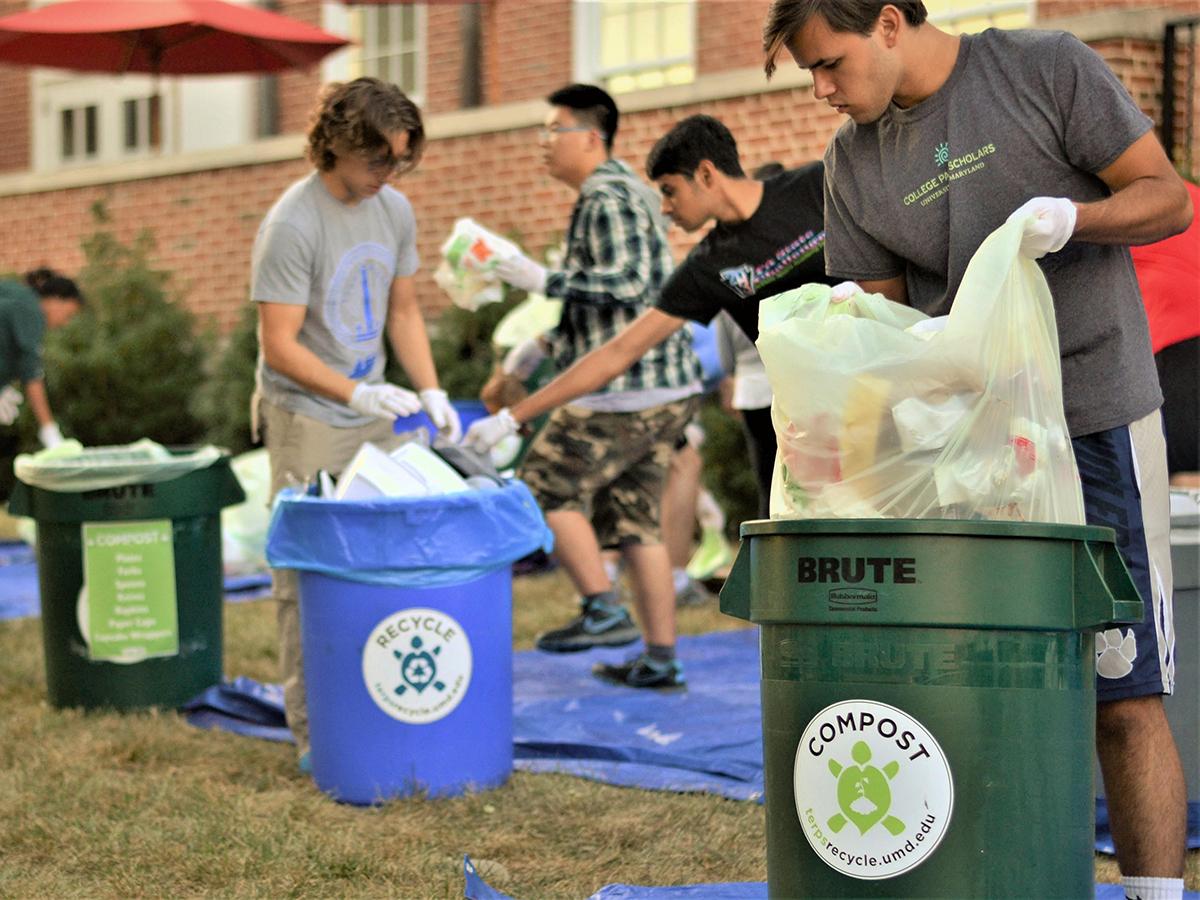Composting

UMD has a history of composting that goes back to 2007. Since then, efforts have expanded and compost bins are now located in buildings across campus. You can view compost bin locations on the campus map.
Compostable Items:
- Food scraps
- Napkins
- Paper towels
- Paper food containers
- Plants and flowers
- Other items marked “compostable”
Not Compostable:
- Plastic tableware
- Straws,
- Beverage lids
- Metal cans
- Plastic bottles
To determine whether a paper food container is compostable, try to tear it. If it tears easily, it can be composted.
Required Composting
Recent state legislation now requires the collection of compostable materials every time food is served on the UMD campus. House Bill 264/Senate Bill 483, entitled “Solid Waste Management Organics Recycling and Waste Diversion – Food Residuals,” requires composting all food scraps from any campus event, whether a student group meeting, a small staff meeting or a large event. You can fill out a work request form to request compost bins for your event.
Composting at UMD
The compost that is made from the organics collected from campus is sold regionally at most lawn and garden retailers as a product called LeafGro Gold. Currently, Terp Farm uses this product in its gardens - a great example of a closed-loop system.
